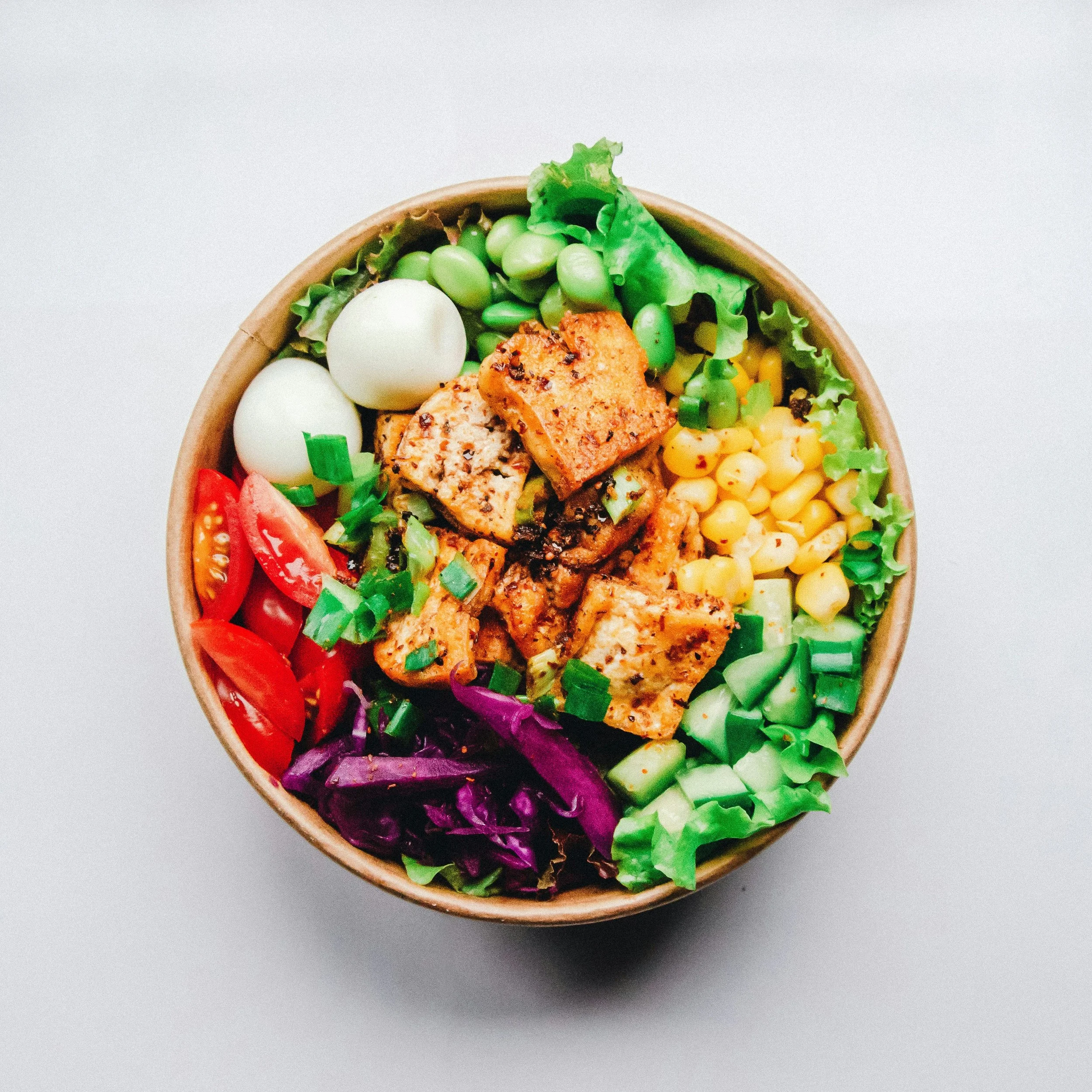Nourishing Your Body for Hormonal Well-Being
As we navigate perimenopause, the foods we eat can play a significant role in managing symptoms and supporting overall health. Nutrition is a powerful tool that can help stabilize hormones, maintain energy levels, and promote long-term well-being.
One of the leading voices in menopause nutrition, Dr. Mary Claire Haver, a board-certified OB/GYN and creator of The Galveston Diet, has developed a practical approach to nutrition for women in perimenopause and menopause. Her philosophy focuses on reducing inflammation, balancing blood sugar, and supporting hormones—all of which can help manage symptoms like fatigue, brain fog, and stubborn weight gain.
Here are some simple, effective ways to support your body through perimenopause:
Focus on Anti-Inflammatory Foods
As estrogen levels shift, inflammation in the body can increase, making symptoms worse. The good news? The right foods can help. Try to:
✔ Eat more omega-3-rich foods like fatty fish (salmon, sardines), flaxseeds, and walnuts to fight inflammation.
✔ Cut back on inflammatory foods like refined sugar, white flour, and processed carbs, which can spike blood sugar and worsen symptoms.
Balance Your Macros
The right mix of protein, healthy fats, and fiber-rich carbs will keep your energy stable and help your body burn fat more efficiently.
✔ Protein is key – Aim for 20-30 grams per meal from sources like chicken, fish, eggs, tofu, or lentils to support muscle and metabolism.
✔ Healthy fats matter – Avocados, nuts, seeds, and olive oil help with hormone production and reduce inflammation.
✔ Choose fiber-rich carbs – Whole grains, beans, fruits, and veggies keep blood sugar steady and support digestion. Aim for 25-30 grams per day to keep digestion regular, balance blood sugar, and reduce cravings.
One of the best ways to ensure you’re getting enough protein, fiber, and healthy fats is by tracking your intake. Apps like Cronometer make it easy to log your meals and monitor key nutrients, helping you stay on track with your health goals.
While tracking isn’t necessary for everyone, it can be a great way to build awareness around your food choices and make adjustments as needed. If you’re new to tracking, try logging your meals for a few days to see where you stand—knowledge is power.
Intermittent Fasting (If It Works for You!)
Dr. Haver recommends intermittent fasting as a way to help stabilize blood sugar and reduce cravings. If you're new to it, start slowly—maybe a 12-hour fast overnight—and see how your body responds. While intermittent fasting can be beneficial for some women, it's not right for everyone. Some health conditions make fasting challenging or unsafe. Before trying intermittent fasting, consult with your healthcare provider to determine if it's appropriate for your individual needs and medical history.
Eat Nutrient-Dense Whole Foods
✔ Cruciferous veggies (broccoli, cauliflower, kale) help your body process estrogen.
✔ Calcium and Vitamin D-rich foods support bone health, which becomes even more important during this stage of life.
✔ Phytoestrogen-rich foods like organic soy, flaxseeds, and legumes may help balance hormonal fluctuations.
Stay Hydrated & Manage Stress
✔ Water, water, water! Staying hydrated can help with bloating, fatigue, and even hot flashes.
✔ Find ways to de-stress – Yoga, meditation, or even just deep breathing can support hormonal balance. We’ll dive deeper into stress management later in this series.
What to Limit or Avoid
✖️ Caffeine overload – Too much can raise stress hormones and mess with your sleep.
✖️ Processed carbs and sugar – These cause energy crashes and increase inflammation.
✖️ Alcohol – Even small amounts can throw off hormones and impact brain health.
By focusing on whole, nourishing foods, you can support your body through perimenopause and beyond. It’s all about progress, not perfection—so start with small changes and see what works best for you! Remember that individual needs and results with vary by person, and it's always best to consult with a healthcare provider before making significant dietary changes.
Book a free discovery call if you're looking for support in building healthy habits through midlife—I’d love to help you feel your best.
Sources:
https://galvestondiet.com
https://thepauselife.com/blogs/the-pause-blog/how-does-nutrition-affect-menopause
https://thepauselife.com/pages/the-galveston-diet
https://cronometer.com/blog/the-galveston-diet/
Photo by Anh Nguyen on Unsplash
